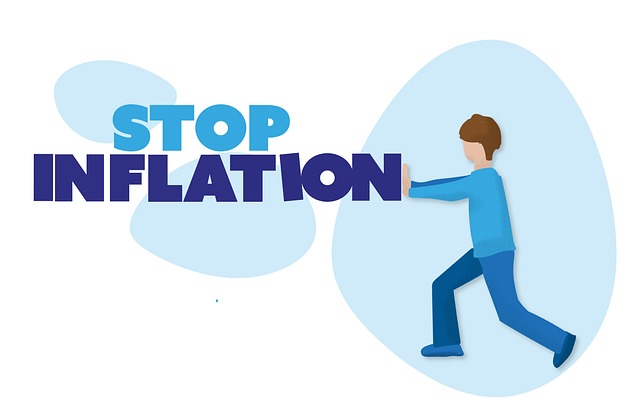The Role of Email Marketing in Strengthening Brand Relationships
In a world where businesses are vying for attention, email marketing has emerged as a potent tool for fostering brand relationships. It’s not just about sending promotional emails; it’s about cultivating a bond with your customers. When you consider that 58% of people check their email first thing in the morning, the potential for engagement through email becomes evident. Unlike social media, where your message might get lost in the noise, email marketing allows direct communication with your audience. Think of email as your own personal megaphone that you can use to share your brand’s story, values, and offerings with those who have opted in to hear from you. This direct line of communication plays a vital role in nurturing relationships and enhancing customer loyalty.
Building strong brand relationships through email marketing involves understanding your audience. This means segmenting your email lists and personalizing content. When customers receive messages that resonate with their preferences and shopping behavior, they feel valued. You can utilize data analytics to understand which products or services your audience interacts with the most. With this information, you can craft personalized email campaigns that not only promote products but also provide valuable content. For example, a clothing retailer can send styling tips or a recipe blog can share seasonal recipes aligning with food trends. By offering tailored content, you create a deeper connection with your audience, increasing the likelihood of customer retention.
Furthermore, the creative aspect of email marketing cannot be understated. An appealing design, coupled with engaging content, can significantly impact how a brand relationship develops. Emails should not only look good but should also reflect your brand’s personality. Whether you adopt a playful tone or maintain a more professional demeanor, consistency is critical. This visual branding speaks volumes to consumers and can create familiarity, making them feel more at ease when interacting with your products or services. Incorporating eye-catching images or videos within your emails can further captivate your audience’s attention. Visual elements can enhance storytelling, making your emails unforgettable and encouraging recipients to share them with others.
Another significant advantage of email marketing is the ability to automate communications, which can maximize efficiency. Automation allows brands to send timely messages tailored to individual customer journeys. For instance, you can set up welcome emails for new subscribers, promotional offers on important dates, or reminders for abandoned carts. These automated messages maintain engagement without requiring constant manual effort. By timing your outreach effectively, you can significantly boost customer retention. Think about how receiving an anniversary discount or checking in with a “We miss you!” email can reignite interest. This targeted approach not only enhances the customer experience but also reinforces the idea that your brand understands them on a personal level.
Engaging Through Valuable Content
A well-crafted email does more than sell; it educates and entertains. Providing useful information helps to position your brand as an industry leader. This is where content marketing and email marketing intersect. You can share insightful articles, how-to guides, or informative webinars directly through email. By doing so, you not only provide value to your audience but also establish trust. Trust is crucial in cultivating long-lasting brand relationships. When customers see a brand as a reliable source of information, they are more likely to engage with it and make repeat purchases. Thus, the value provided through your emails can serve as the first step in a larger journey towards nurturing brand loyalty.
Additionally, surveys and feedback forms offer a unique avenue for engaging your audience. When you solicit opinions from your customers, you not only demonstrate that you value their input, but you also gain valuable insights into their preferences and needs. By incorporating the feedback into your future campaigns, you create a loop of engagement where the customer feels heard. When they see their suggestions implemented, it creates a deeper emotional connection. This practice significantly enhances customer retention as they become advocates for your brand, feeling a sense of ownership in your offerings.
Moreover, employing dynamic content in your email campaigns can also significantly boost engagement. Dynamic content tailors email elements based on the recipient’s previous interactions with your brand. For instance, you can show products related to previous purchases or content they’ve shown interest in. This hyper-personalization makes each email feel uniquely created for that individual, which significantly increases open rates and click-through rates. The more relevant your emails are to a person’s interests and behaviors, the more likely they will foster an ongoing relationship with your brand. As a result, your email marketing strategy can drive both engagement and customer loyalty.
Staying Relevant and Consistent
In the fast-paced world of digital marketing, staying relevant is paramount. As consumer tastes evolve, so must your email marketing strategies. Regular testing of your email campaigns through A/B testing can provide insights into what resonates best with your audience. By experimenting with subject lines, content formats, and send times, you can refine your approach for better results. Moreover, keeping an eye on industry trends and adapting to technological advancements ensures that your email marketing does not fall behind. This proactive stance not only helps to maintain customer interest but also reinforces your brand as a forward-thinking leader in your industry.
Consistency is another crucial element in strengthening brand relationships through email marketing. Your audience should come to expect regular communication from you without feeling overwhelmed. Establishing a routine for your emails—whether it’s a weekly newsletter or a monthly update—helps create anticipation. When your audience knows when to expect your updates, they’re more likely to engage. Moreover, consistency builds trust. When customers see a brand promoting values and messaging that aligns with their expectations, they perceive the brand as reliable. Therefore, balancing frequency and quality is essential for nurturing long-lasting relationships.
In addition, considering the mobile experience is vital. More than half of all emails are read on mobile devices. Thus, ensuring your emails are mobile-friendly can make a significant difference in engagement levels. A responsive design that intuitively adapts to various screen sizes makes it easier for users to read, click, and interact with your emails. Crafting compelling, short messages that lead to a clear call to action can help maintain the user’s attention on their phone. By optimizing your email campaigns for mobile devices, you demonstrate your brand’s commitment to providing an excellent customer experience, which contributes to stronger brand relationships.
Measuring Success and Making Adjustments
Lastly, measuring the success of your email marketing campaigns is essential to understanding their impact on brand relationships. Metrics like open rates, click-through rates, and conversion rates provide insights into how well your messages resonate with your audience. These data points allow you to identify what’s working and what’s not. If a particular campaign shows lower engagement, it’s crucial to analyze it critically and adjust accordingly. Perhaps the subject lines are not compelling enough, or the timing needs tweaking. Continuous optimization based on data ensures that your email marketing strategies evolve just like your audience’s preferences.
Additionally, customer feedback should never be overlooked. As mentioned earlier, surveys can yield invaluable insights into customer perception and experience. If a portion of your audience expresses dissatisfaction, it’s vital to investigate further. Actively listening to your customers strengthens relationships. When customers see a brand taking steps based on their feedback, it builds a sense of community and belonging. They realize that they are part of a brand journey, fostering loyalty and ongoing engagement.
Overall, email marketing plays a transformative role in developing and nurturing brand relationships. By leveraging personalization, automation, valuable content, and feedback, brands can significantly enhance customer retention. The key lies in maintaining open lines of communication, being consistent, and ensuring relevance in every correspondence. Brands that effectively utilize email marketing not only retain customers but also create advocates for their brand. When customers feel heard, appreciated, and connected, they are more likely to develop a long-term relationship with that brand, turning casual shoppers into committed patrons.
FAQ
-
What is email marketing?
Email marketing involves sending commercial emails to a group of people with the aim of promoting products or services, building relationships with customers, and improving retention.
-
How can email marketing strengthen brand relationships?
By personalizing messages, providing valuable content, maintaining consistency, and engaging customers through feedback, email marketing helps brands create deeper connections and enhance customer loyalty.
-
What role does automation play in email marketing?
Automation allows brands to send timely, personalized messages based on customer behavior without the need for constant manual effort, significantly improving engagement and retention rates.
-
How can I improve my email engagement rates?
Improve engagement rates by personalizing content, optimizing for mobile, segmenting your audience, and continuously testing different elements of your emails, such as subject lines and send times.
-
What metrics should I track in email marketing?
Key metrics to track include open rates, click-through rates, conversion rates, and unsubscribe rates, as these provide insights into the effectiveness of your email campaigns.



